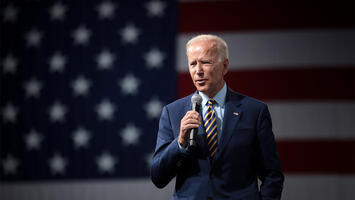
This week’s surge in workers seeking unemployment benefits should be a sign that America’s already weakening economy, and much slower job growth, could prove the key to this year’s election. Indeed, one in four Americans fear losing their job in the next year.
These trends are widely ignored or dismissed by the Biden team, which blames poor polling on what it refers to as “vibescession”. The President certainly seems out of touch. In a recent interview, he dismissed concerns about persistent inflation, claiming people had “money to spend” and downplaying the 30% rise in prices since he took office.
To be sure some, notably Wall Street and well-paid Government workers, have benefitted. But for most middle- and working-class Americans in the private sector, things are not so rosy. Sectors that employ millions of these people — logistics, manufacturing, agriculture, technology — have been flat or even declined. Many of these workers operate in the “carbon economy”, which is threatened by Biden’s green tsunami. The President’s policies may offer a big win for renewable energy companies, lawyers and consultants who feast on this regulatory banquet. But they also constitute a direct threat to those dependent on reliable and low-cost energy such as truck drivers, loggers and oil workers.
These workers, along with small business owners, increasingly make up the base of the GOP. By contrast, professions such as librarians, teachers, environmentalists, and yoga instructors have become prominent pro-Biden constituencies.
This economic divide is shattering the traditional Democratic coalition. The party’s loss of white blue-collar workers has been well-documented; and in some critical places such as Pennsylvania, attacks on the state’s fracking boom are boosting support for Donald Trump. Many of the other swing states — Michigan, Wisconsin and Arizona — where the President is currently trailing also have strong industrial economies threatened by Bidenomics.
The disquiet is now extending from the primarily white and older Trump base to other groups, such as minorities and young people. Take Latinos, who make up much of the nation’s blue-collar economy. According to data from the US Bureau of Labor Statistics (BLS), Latino workers account for approximately 20% of the transportation industry’s workforce, over 22% of all manufacturing workers, and a third of all construction workers. These workers are departing from their traditional Democratic allegiance, with Republican support among Hispanic voters growing by 10 points since 2018.
Read the rest of this piece at Unherd.
Joel Kotkin is the author of The Coming of Neo-Feudalism: A Warning to the Global Middle Class. He is the Roger Hobbs Presidential Fellow in Urban Futures at Chapman University and and directs the Center for Demographics and Policy there. Learn more at joelkotkin.com and follow him on Twitter @joelkotkin.
Photo: Gage Skidmore via Flickr under CC 2.0 License.












